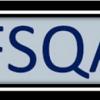Hi everyone!
We are looking at importing RTE breakfast cereals like muesli and snack bars from Europe to GCC. The manufacturer is not Halal certified. Since these are regular foods (not animal based) I am wondering if we can import the products on basis of testing the finished product for Halal testing I.e. porcine derivatives and alcohol residue. Would this suffice? Or is it mandatory that the manufacturer has to be Halal certified even for such low risk products? The volume is not huge so it doesn’t justify us asking them to get Halal certified...
I would be grateful if anyone on this forum who has handled a similar scenario or is aware of the requirements could share their expertise or experience.
Thanks in advance!
Roshni
- Home
- Sponsors
- Forums
- Members ˅
- Resources ˅
- Files
- FAQ ˅
- Jobs
-
Webinars ˅
- Upcoming Food Safety Fridays
- Upcoming Hot Topics from Sponsors
- Recorded Food Safety Fridays
- Recorded Food Safety Essentials
- Recorded Hot Topics from Sponsors
- Food Safety Live 2013
- Food Safety Live 2014
- Food Safety Live 2015
- Food Safety Live 2016
- Food Safety Live 2017
- Food Safety Live 2018
- Food Safety Live 2019
- Food Safety Live 2020
- Food Safety Live 2021
- Training ˅
- Links
- Store ˅
- More

















